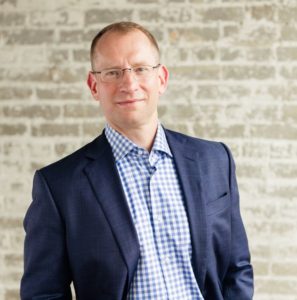 The Opioid Epidemic: How the Medical Industry Created a Public Health Crisis
The Opioid Epidemic: How the Medical Industry Created a Public Health Crisis
If you ask Dr. Chris Johnson about the opioid crisis, you will receive an honest, fiery, and unpretty truth about the healthcare industry. He has been working in healthcare for over 20 years and spent the first fifteen in the emergency room. As an ER doctor, he worked on the front lines of medicine – seeing and treating any patient that came through the door. As time wore on, he began to see many patients who were suffering from opioid dependence and addiction. Chris recognized that many of these patient’s introduction to opioids began with a health injury that seemed minor or common but led to an addiction that for so many has turned deadly.
As a new doctor, Chris did not initially question how the health care industry was set up. He was too busy making sure he understood how best to take care of patients. Over time, however, he began to notice the contradictions between what he was taught and the realities of what he was seeing in everyday practice. The treatments he was told were effective and safe were leading to injury or even death. And rather than encouraging the least amount of tests and reducing costs, he was more favorably evaluated by providing more expensive care. He also noticed that other countries, like Britain or Germany, with different economic incentives, were not suffering an opioid crisis like the United States. Estimates of the number of dead lost to this crisis are staggering – anywhere from 300,000 to 500,000 so far in the past 15 years. This catastrophe had its origins in the increased prescribing of opioids for chronic pain which was a creation of the health care industry. Chris points out that even with the most effective medical treatment for opioid addiction, patients are still at much higher risk for dying young than if they never developed opioid addiction in the first place.
Chris hopes to demonstrate through facts and stories the problems with the health care industry – problems that simply funding treatment for those with opioid addiction are not going to fix. He hopes to broaden the public’s understanding of how this epidemic was created so that a discussion can be had about effective solutions both in the short and long term. Central to understanding this crisis is knowledge of how the American medical system operates like a private business with revenue as the goal. When selling the most services to the greatest number of people is the incentive, important science is neglected. This is why even doctors who are sworn to place their patient’s interests first can provide unproven and dangerous care for years. Chris believes that it is the system that engineered this crisis.
Chris hopes to open the listener’s minds to the idea of wholesale change in the structure of the health care industry. As it is currently constructed, it is not serving the patient. He is passionate about providing a clear and honest lens for others to understand healthcare and how the opioid crisis originated. He continues his clinical practice providing patient care while he strives to expand his mission as a public health advocate. He is frustrated with how the system currently operates and wants change both for the health of patients and for the physicians practicing within it, who increasingly find themselves as cogs in a corporate machine and struggle with high rates of burnout. He believes a better system is possible for everyone and he will continue caring for patients and educating communities to fight for reform.
